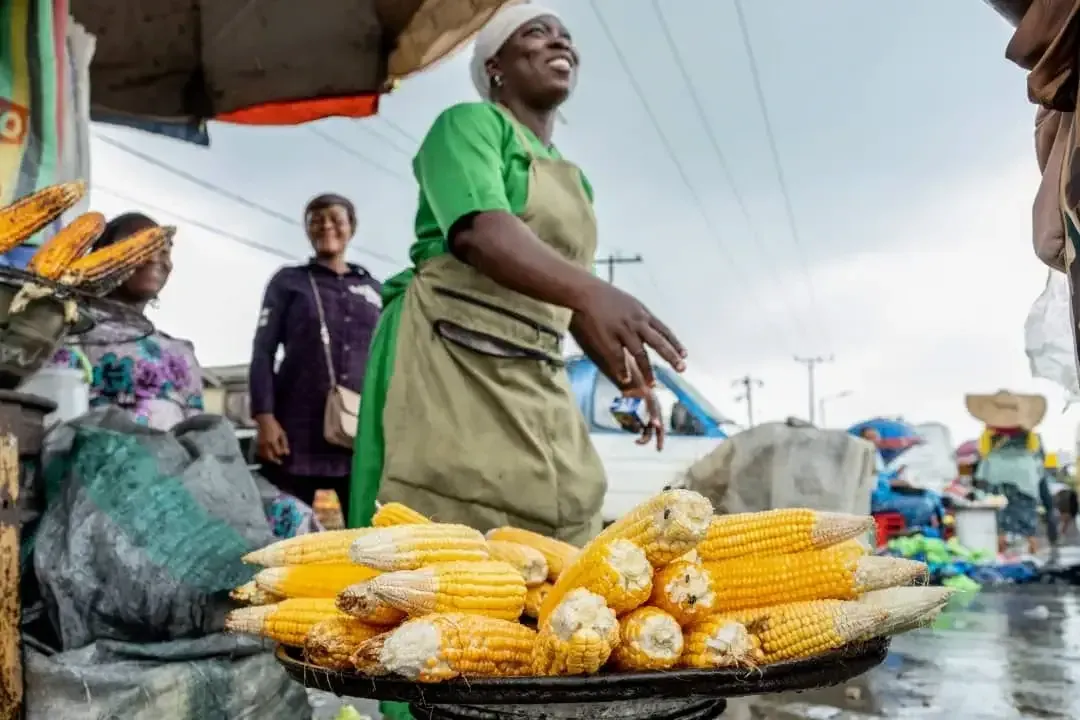
Mistakes of Esau: 10 Harmful Habits That Ruin People's Destiny
Is your destiny being sabotaged? Are you tired of repeating the same mistakes and watching your life and dr…
Is your destiny being sabotaged? Are you tired of repeating the same mistakes and watching your life and dr…
 |
| Source: Bloomberg.com |
The inflation rate in Nigeria has been on the rise for years now, and it reached an all-time high of 26.72% in September 2023, according to the National Bureau of Statistics (NBS). This represents an increase of 0.92% from August of the same year. This is the highest inflation rate recorded in the country since April 2017, when it reached 27.4%. The rise in inflation is attributed to the second-round effects of the removal of an old petrol subsidy and the devaluation of the Naira against the greenback on both the official and parallel markets. The prices of food, which is the most relevant in the CPI basket, jumped to 30.6% in September, the highest since August 2005, from 29.3% in the prior month, also linked to security issues in food-producing regions
Also, Read!:
7 Ways High Inflation Affects Your Income and the Economy
Inflation is the rate at
which the prices of goods and services are rising. It is a measure of the
decrease in purchasing power of money over time. In Nigeria, inflation has been
a major problem for many years. In September 2023, the inflation rate in
Nigeria reached 26.7%, the highest it has been in 17 years.
From an academic standpoint,
there are a number of factors that have contributed to high inflation such as
bad monetary policy, unlike other countries of the world; inflation is caused
in Nigeria by primarily what we have come to know as “The dollarization” of the
Nigerian economy. Being an import-dependent
country, a rise in the exchange rate will amount to an increase in the price of goods and services.
There are a number of factors that
have contributed to Nigeria's high inflation rate, including
The Nigerian
naira has depreciated significantly against major currencies recently,
with the Naira trading at over N1000 to a dollar. This has made imports more
expensive, which has contributed significantly to inflation.
Nigeria is a
net importer of food and energy. The rising cost of these commodities in the
global market has also contributed to inflation in Nigeria.
Nigeria has several structural problems in its economy, such as poor infrastructure and
corruption. These problems have made it difficult for businesses to operate
efficiently and have also contributed to inflation.
The pandemic
disrupted supply chains and caused food prices to rise.
The war has caused
energy prices to rise, which has also contributed to inflation.
The global cost of food
and energy has been rising in recent years, which has also put upward pressure
on inflation in Nigeria.
The government's budget deficit:
The removal of an old petrol subsidy and the systemic devaluation of the Nigerian Naira against the US dollar, both on official and parallel markets, have had significant second-round effects on inflation.
Food prices,
a vital component of the Consumer Price Index (CPI), spiked to 30.6% in
September, the highest since August 2005. These increases are partly attributed
to security issues in food-producing regions.
Decreased Purchasing Power:
As prices of
goods and services rise, individuals' purchasing power decreases. This can lead
to difficulties in affording basic necessities, impacting the standard of
living for many Nigerians.
High
inflation rates can deter foreign investors from considering Nigeria an
attractive investment destination, as they may be hesitant to invest in a
country with such high inflation.
The high inflation rate in Nigeria has several implications for the economy. It makes it difficult for people to afford basic necessities like food and housing. It also reduces the purchasing power of consumers, which can lead to a decrease in demand for goods and services. This can lead to a slowdown in economic growth.
The Nigerian government is
taking steps to address the issue of high inflation. The government has raised
interest rates in an attempt to slow down the economy and reduce inflation. Ordinarily, the above step should tem inflation but for Nigeria is making it worse because
the cause of inflation in Nigeria is different and therefore requires a different
approach. The government is also working to improve the supply of goods and
services in the country surrounding them. However, it is likely to take some
time for these measures to have an impact on inflation.
What Can Individuals Do to Cope with High
Inflation?
This will help you to see
where your money is going and to make sure that you are spending it on the most
important things.
This could include things like eating out less
or cancelling unused subscriptions.
Compare prices at
different stores and markets before you buy anything.
Buy in bulk:
This can save you money,
especially on items that you use frequently.
Grow your own food:
If you have the space,
growing your own food can be a great way to save money on groceries.
By following these tips,
Nigerians can help to cope with high food inflation and protect their finances.
Conclusion
Inflation is a serious
problem for the Nigerian economy. It has several negative implications for
individuals and businesses. The Nigerian government is taking steps to address
the issue, but it is likely to take some time for these measures to have an
impact. In the meantime, there are many things that individuals can do
to cope with high inflation.
Recommended For You:
Post a Comment
0Comments